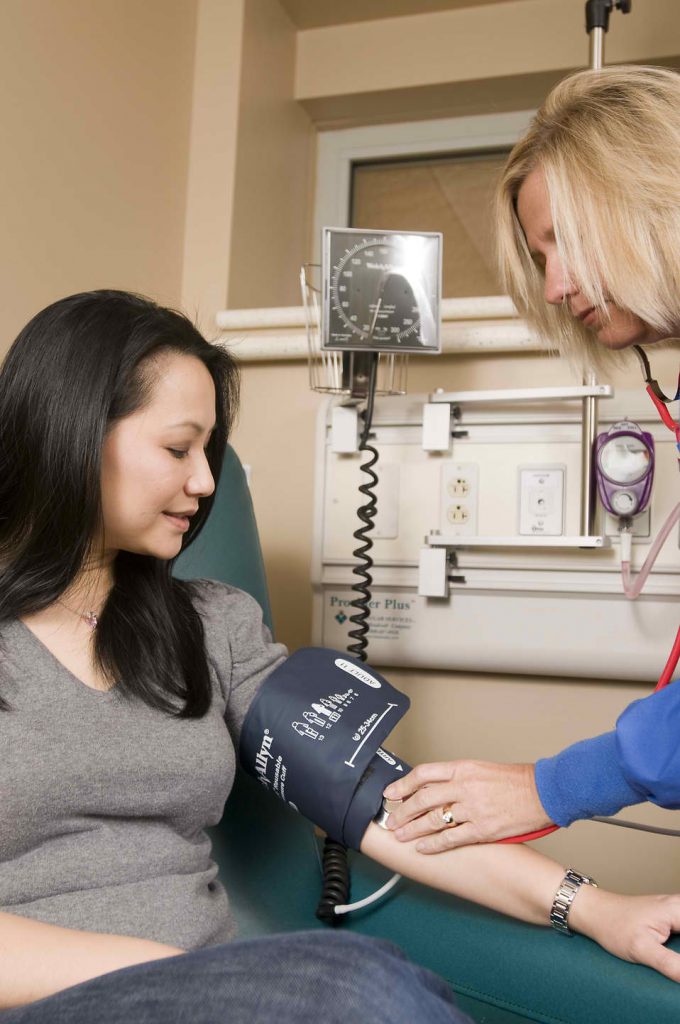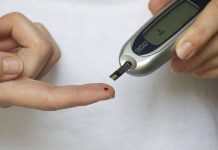“erratic heartbeat should be taken seriously and diagnosis should factor in everything that is going on in your life.”
Heart palpitations during menopause are definitely a less well known symptom of perimenopause and postmenopause. Many women who experience heart palpitations during this transition phase of life may initially think the two are unrelated.
But any experience with irregular or erratic heartbeat should be taken seriously and diagnosis should factor in everything that is going on in your life, including the sometimes severe hormone fluctuations that characterize perimenopause.
In this article, learn about menopause heart palpitations and find out the right next steps to take, including options for natural remedies and when to see your doctor.
What Causes Heart Palpitations During Menopause?
There are two main reproductive hormones that begin to fluctuate during perimenopause: estrogen and progesterone. Both can cause a variety of uncomfortable and sometimes worrisome symptoms.
In the case of heart palpitations, estrogen is the primary culprit. Decreases in estrogen can increase heart activity and lead to erratic heartbeat and palpitations.
Should You Worry?
“heart arrhythmia that occurs during perimenopause is not considered a major cause for worry.”

As estrogen declines during perimenopause, blood pressure rises and this puts the whole body under more stress.
This increased systemic stress can then cause a natural spike in cortisol, the stress hormone. This spike in cortisol can sometimes contribute to heart palpitations.
Because this is a known issue during perimenopause, in most cases, heart arrhythmia that occurs during perimenopause is not considered a major cause for worry.
However, you should always contact your doctor if you are worried about your heart irregularity, as more stress will simply add to the problem.
Natural Remedies
“Not only can regular exercise help you stay fit and healthy, but it can also deliver mood-lifting endorphins that help you de-stress naturally to calm your heart.”
These natural remedies come highly recommended from patients and providers.
1. Learn stress management tips.
Stress is a major trigger for heart palpitations at any age and phase of life. During menopause, stress is increased not only by the many discomforts that can arise but also by hormonal fluctuations.
This makes stress management vitally important to support heart health. Breathing, meditation, yoga, tai chi, massage, guided visualizations and other tools can all help naturally lower stress levels.
2. Lessen use of known stimulants and alcohol.
Caffeine, tobacco products, certain medications (both OTC and prescription), diet drugs and other products are known stimulants, which means they can speed up heart rate.
This is the exact opposite of what you want during perimenopause, so reducing or eliminating use may ease heart palpitations.
Alcohol is not a stimulant, but research indicates there is a link between alcohol intake and atrial fibrillation, a type of irregular heartbeat. So alcohol is best avoided for this reason.
3. Try stimulating your vagus nerve.
The vagus nerve is a major nerve in the body that connects the brain with the heart, lungs and gut. There are a variety of ways to stimulate the vagus nerve, which will then react to calm your heart.
You can hum, cough or gag to stimulate the vagus nerve. Stepping under a cold shower or splashing your face with cold water are also stimulating.
4. Stay hydrated and balanced.

Hydration is a vital component of heart health, but not just any hydration will do. You need to hydrate with plain, still water and electrolytes to achieve a calmer heart.
Electrolytes are often found in energy drinks, but these can also contain sugar and caffeine, which you want to avoid. Foods with potassium, magnesium, calcium and sodium like bananas, potatoes, spinach and avocados can add electrolytes naturally.
5. Stay active and engaged.
Not only can regular exercise help you stay fit and healthy, but it can also deliver mood-lifting endorphins that help you de-stress naturally to calm your heart.
When to See Your Doctor?

There are some times when it is smart to make an appointment with your doctor right away if you are experiencing heart palpitations.
If the arrhythmias increase in frequency or severity, if you start experiencing headaches during arrhythmia episodes, if you start to feel dizzy or faint or experience chest pain or pressure, you should immediately schedule an appointment with your doctor.
Menopause heart palpitations should always be taken seriously, as should any change in your heart function. Menopause is a time of systemic change and it is important to take extra-good care of yourself and seek professional guidance as needed.
Sources & References:
https://www.medicalnewstoday.com/articles/317700.php
https://www.medicalnewstoday.com/articles/321541.php
http://www.onlinejacc.org/content/64/3/281
https://www.healthline.com/health/menopause/menopause-and-heart-palpitations





















